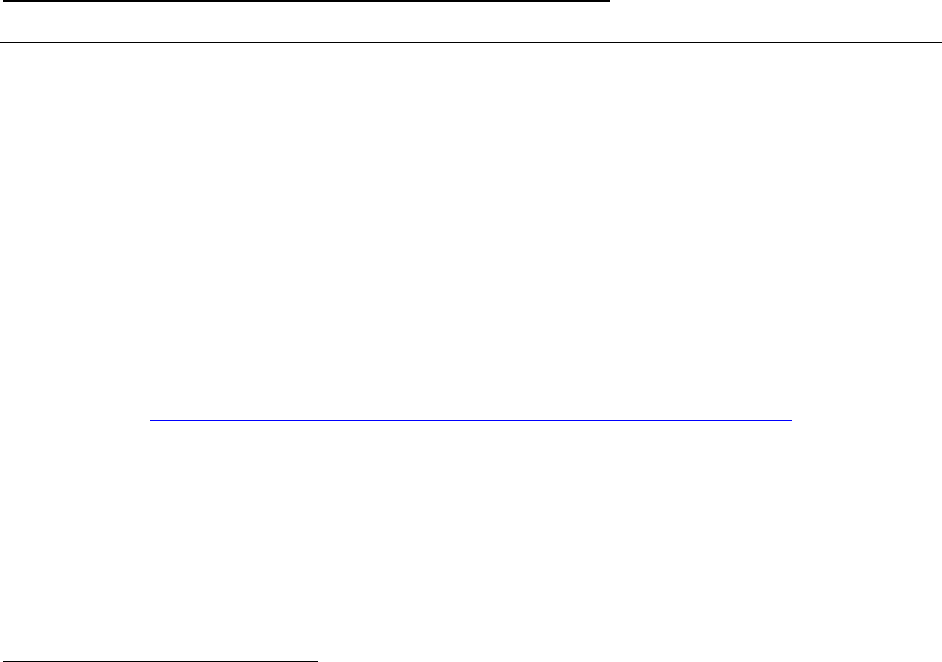
North Carolina School Health Program Manual
Section C, School Nursing Practice, Chapter 2, Roles & Responsibilities
1 NC DCFW/SACHU 3/2024
Roles and Responsibilities of the School Nurse
As the role of the school nurse has evolved, so have the position statements describing that role.
In 2017, the National Association of School Nurses (NASN) defined school nursing as:
School nursing, a specialized practice of nursing, protects and promotes student
health, facilitates optimal development, and advances academic success. School
nurses, grounded in ethical and evidence-based practice, are the leaders who bridge
health care and education, provide care coordination, advocate for quality student-
centered care, and collaborate to design systems that allow individuals and
communities to develop their full potential. Adopted by the NASN Board of
Directors February 2017.
NASN created the Framework for 21
st
Century School Nursing Practice to further define the
practice of professional school nursing to include four major components: Leadership,
Community/Public Health, Care Coordination and Quality Improvement.

North Carolina School Health Program Manual
Section C, School Nursing Practice, Chapter 2, Roles & Responsibilities
2 NC DCFW/SACHU 3/2024
Competencies in School Nursing Practice
The components of nursing practice in North Carolina are defined and regulated by the North
Carolina Board of Nursing as documented in 21 NCAC 36.0224, Components of Nursing Practice
for the Registered Nurse. As mentioned in Section C, Chapter 1, NASN, together with the
American Nurses Association (ANA), have developed professional standards for school nursing
practice that well reflect Board of Nursing requirements. School Nursing Scope and Standards of
Practice, 4
th
Edition (ANA & NASN, 2022) includes a list of competencies that support each
standard.
School health programs and school nursing roles should be based on these sources. In addition,
the American Academy of Pediatrics also issued a policy statement in 2016 regarding school
nursing roles, Role of the School Nurse in Providing School Health Services. School nurse
competency expectations and validation are an important part of self and employer evaluations for
school nurses.
Supervision and Evaluation of School Nurses
Nursing is viewed as an independent practice profession in North Carolina. The North Carolina
Board of Nursing states, “RN practice encompasses the full scope of nursing and includes caring
for all clients in all settings. The RN scope of practice in all steps of the nursing process is
independent and comprehensive. RN practice does not require assignment or supervision by a
higher-level health care provider” (North Carolina Board of Nursing, 2017).
In the school setting the registered nurse is often organizationally placed under an administrative
supervisor, such as the Director of Student Services. This relationship allows supervision of
position requirements that pertain to all employees but does not allow for an evaluation of
professional nursing practice-related requirements. As stated by the National Association of
School Nurses, “In the school setting, it is important to distinguish non-clinical nursing supervision
and evaluation.” Additionally, “when school nursing clinical practice competency is supervised or
evaluated, it must be done by a professional nurse (RN) with knowledge about school nursing”
(NASN, 2023). Employee performance examples for non-clinical supervision include hiring and
firing activities, salary adjusting, compliance with district policies and procedures, use of leave
time, punctuality, etc.
All staff benefit from regular evaluation to foster professional growth and program development.
To this end, school nurses also benefit from the opportunity for professional development that is
provided by practice review and evaluation. Ensuring student health and safety as well as continual
improvement in individual school nurse practice is the ultimate goal of evaluation. Such review
should be formalized and occur at regular intervals. Those nurses who are supervised by a
registered nurse can have an evaluation of their nursing practice incorporated into the overall
performance evaluation. School nurses without a registered nurse supervisor can still obtain
nursing practice review through other means. Nurses who work with a peer group may utilize a
peer review process. This is consistent with the Board of Nursing requirement that the supervision
and evaluation of a registered nurse’s practice only be completed by another registered nurse.

North Carolina School Health Program Manual
Section C, School Nursing Practice, Chapter 2, Roles & Responsibilities
3 NC DCFW/SACHU 3/2024
During the summer of 2013, the NC State Board of Education approved a School Nurse Evaluation
Process. It includes a rubric based on requirements of the NC Board of Nursing, Scope of Practice
and Professional School Nursing Standards, as well as the competencies for school nurses. The
evaluation process is written in its entirety as a User’s Guide that may be found at the following
NC Department of Education site: https://sites.google.com/dpi.nc.gov/ncees-information-and-
resource/support-staff/school-nurses. This document reinforces evaluation by another registered
nurse within the school system or through peer review. This tool was written for school nurses
employed by LEAs in North Carolina. However, other agencies employing school nurses may
adapt it for their use.
Use of the standards for school nurses can provide the focus for schools and districts as they
support, monitor and evaluate their school nurses, and guide school nurses as they move forward
in the 21
st
century, in maintaining the competence and knowledge needed.
References
American Nurses Association and National Association of School Nurses. (2022). School
Nursing: Scope and Standards of Practice, 4th Edition. Silver Spring, MD: ANA & NASN.
National Association of School Nurses. (2023). Supervision and evaluation of the school
nurse (Position Statement). Silver Spring, MD.
North Carolina Board of Nursing. (2017). RN Scope of Practice-Clarification(Position
Statement). Raleigh, NC.
